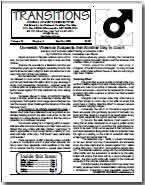
What do men think women’s genitals should look like? Why should anyone care?
Because women are having pieces cut off their genitals to make them conform to an idealised standard that’s been likened to a Barbie doll: smooth, hairless, and barely visible.
Do you have preferences for “innies” or “outies”, hair or no hair, and do you tell your partner about your preferences? We would like to invite men (and women) to participate in a national survey about their attitudes to women’s genitals.
There has been a threefold increase in Medicare claims for labiaplasty (where the labia minora is surgically altered) over the 10 years 2001-2011, the true incidence of genital cosmetic surgery is much greater, because it’s necessary to prove a medical need before a Medicare claim can be made. Cosmetic surgery isn’t claimable.
We need evidence of what is happening in Australia. The Australian Research Council has funded our research to investigate female genital cosmetic surgery in Australia. A team from Monash University is joined by partner organisations the Australian Federation of Medical Women, Jean Hailes for Women’s Health, Family Planning Victoria, Monash Health, and Women’s Health Victoria. The research has four components: in-depth interviews with women, consultation with doctors and beauty therapists, an online survey, and analysis of social media.
Most people don’t seem to be aware that Australian censorship laws prohibit the publication of images that reveal details of women’s genitals in M rated magazines. Vulvas are digitally altered to remove the labia minora and clitoris and “healed to a single crease” so that they look girlish. This legal requirement includes the removal of any visible genitalia covered by clothing. There is no requirement to state that these images have been altered.
Our survey is designed to find out what men and women in Australia think women’s genitals do and should look like; what is normal and abnormal, and what steps people are prepared to take to modify their bodies. Men and women living in Australia are invited to share their opinions in an online survey by Monash University. The survey can be taken until the end of September and takes about 20 minutes to complete.
Maggie Kirkman and Karalyn McDonald
Jean Hailes Research Unit, School of Public Health and Preventive Medicine, Monash University


